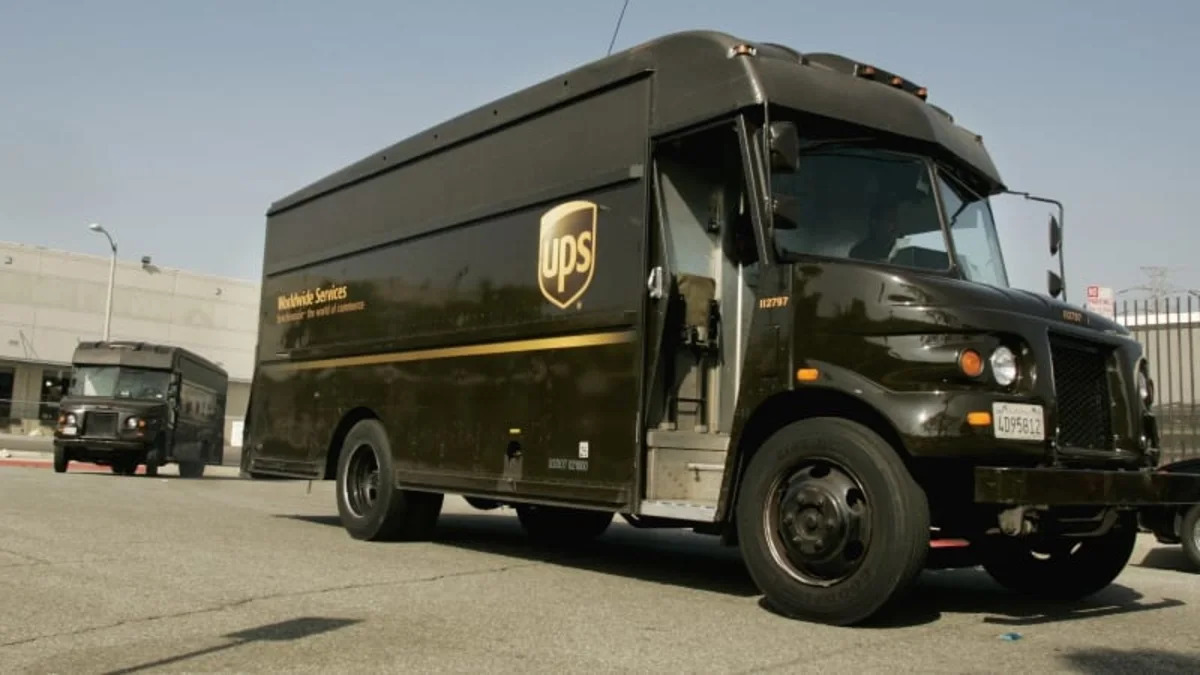DETROIT — A deal Thursday between UPS and U.S. electric van maker Workhorse Group Inc shows how the delivery industry is making progress to resolve a major obstacle to deployment of battery-powered commercial vehicles: Charging costs.
UPS, like its rivals in the package delivery business, faces pressure from regulators in major cities around the world to clean up its fleet of petroleum-burning vehicles. UPS is partnering with Workhorse to build an all-new electric delivery van. The first 50 vehicles with a driving range of 100 miles (160 km) will be delivered in 2018.
That range is enough to allow UPS to replace around 35,000 diesel or gasoline delivery trucks, company officials said. Until recently, however, UPS would have faced substantial costs for the charging stations and related infrastructure to top up the batteries at the end of the day.
"With the large-scale deployments of vehicles, if you can't put them somewhere to take advantage of them then it's irrelevant," Scott Phillippi, UPS senior director for automotive maintenance and engineering for international operations, told Reuters. "We have to have solutions in place to make that happen."
Solutions for the charging problem are now in sight, UPS and other industry officials say.
UPS recently rolled out "smart charging" software at a central London facility that allowed the company to nearly triple its local electric fleet to 170 delivery vans.
The smart charging technology determines when and how fast to charge vehicles. If vehicles are not scheduled for a full route the next day, the system can opt not to fully charge them and charge other vehicles more. Without the software, UPS would have had to install enough infrastructure to charge all the vehicles at the same time - the equivalent of powering an office building or hospital - at a cost of millions of dollars for electric grid hardware.
The project at UPS's London facility was partly funded by Innovate UK, the British government innovation agency.
If successful, UPS will use its London experience as a blueprint around the world as it expands its electric delivery vehicle fleet. UPS' approach could also serve as a model for smaller companies that cannot afford major infrastructure investments.
"If this solution didn't exist, it would cost too much money for small companies to upgrade their connection capacity," said Christos Keramisanos, a consultant at UK Power Networks Services (UKPNS) in charge of the UPS project in London.
Charging costs are critical as delivery fleet operators calculate the costs of switching to electric vehicles.
Hermes, a European delivery service, plans to deploy 1,500 electric Mercedes vans, and is working with Daimler AG's commercial van unit to design recharging systems that do not require new transformers or large numbers of individual charging stations, said Benjamin Kaehler, head of Mercedes' electric van business.
Mercedes' goal is to structure charging costs so an electric van has the same total cost of ownership as a petroleum-fueled van over three years, Kaehler told Reuters. Cheaper charging is key to that goal.
"That's the breakthrough," he said.
U.S. truck leasing and rental company Ryder, which has bought electric vans from Chanje, a unit of China's FDG Electric Vehicles Ltd, is already training its technical and sales staff on smart charging technology.
"Ryder is aware the world is going electric and we are preparing for that future," said Chris Nordh, Ryder's director of advanced vehicle technology. "Smart charging is key to creating scale."
Developing the battery plants and charging infrastructure to fund an electrified global vehicle fleet could require an investment of $2.7 trillion by manufacturers and governments - $1.7 trillion in battery plants, manufacturing and chargers, and $1 trillion on distribution and generation capacity, said Balu Balagopal, a partner in A.T. Kearney's energy practice. His estimate is based on an assumption that 64 percent of the global vehicle fleet is electrified by 2040.
Utility regulations are an obstacle. The United States lacks national standards for recovering the costs of electric-vehicle charging infrastructure.
For Tesla's "Semi" big rig — far larger than a delivery van — customers such as PepsiCo Inc, Anheuser-Busch Inbev and UPS plan to build their own charging stations.
California has moved to allow utilities to recoup investments and is reviewing proposals from utilities to spend more than $1 billion over five years on electrification infrastructure for cars, buses and trucks.
Other states do not allow utilities to spread electric vehicle infrastructure costs across their broad base of ratepayers.
"The right structures haven't been put in place to allow us to operate and participate in this market," said Lang Reynolds, electric transportation manager at Duke Energy Corp of Charlotte, North Carolina, which serves several southeastern U.S. states.
Reporting by Nick Carey
Related Video:


Sign in to post
Please sign in to leave a comment.
Continue